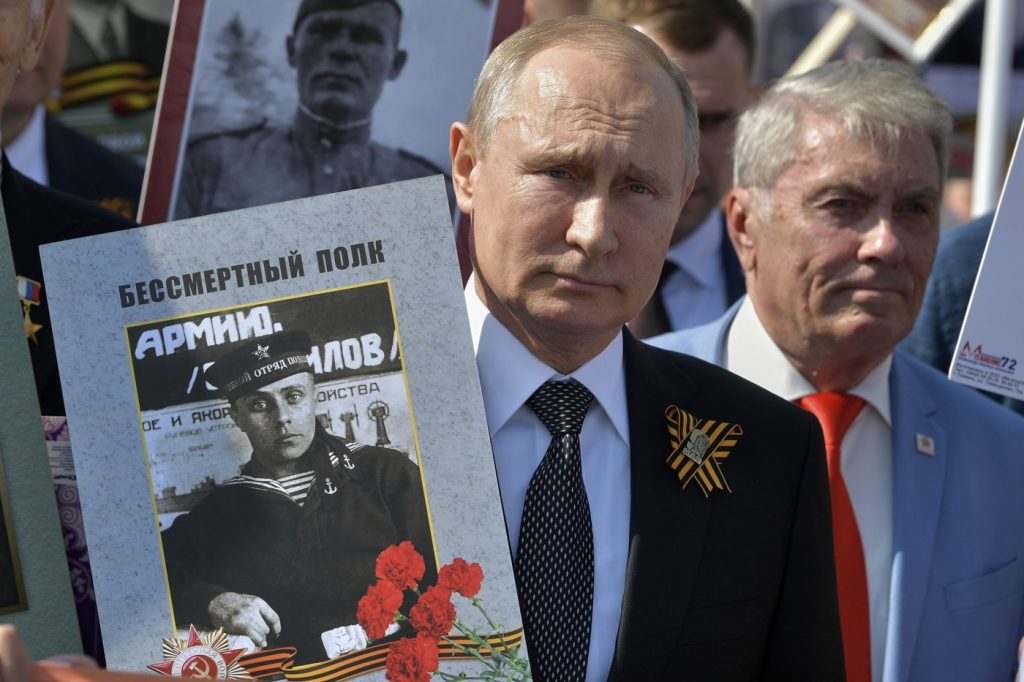Russia commemorates the end of World War II with great pride and significance, particularly on Victory Day, celebrated annually on May 9. This day represents not only the immense sacrifices made during the war but also serves as a means for the Kremlin to foster patriotism and regain the superpower status lost after the Soviet Union's dissolution in 1991. President Vladimir Putin, who has been in power for a quarter of a century, has integrated Victory Day into the central narrative of his leadership, leveraging it to support his ongoing military actions, particularly the invasion of Ukraine that began three years ago.
This year's celebrations are overshadowed by concerns over security, as reports of Ukrainian drone attacks targeting Moscow and significant disruptions at airports and cellphone network outages complicate the atmosphere surrounding the festivities. Nevertheless, Putin remains determined to highlight the failure of Western attempts to isolate Russia by inviting international leaders, including Chinese President Xi Jinping, to partake in the commemorations.
The Soviet Union suffered catastrophic losses during what it refers to as the Great Patriotic War from 1941 to 1945, with an estimated 27 million people perishing. This staggering toll has left a profound mark on the Russian national identity. Nazi Germany invaded the Soviet Union on June 22, 1941, swiftly overtaking much of its western territory and coming alarmingly close to Moscow. However, the tide turned in 1943 with Soviet victories at Stalingrad and Kursk, eventually leading to the liberation of territories and the fall of Berlin.
Putin emphasizes the significance of these sacrifices, underscoring that every seventh Soviet citizen was killed, contrasting this with the casualty rates of the United Kingdom and the United States. His reflections on World War II are deeply personal; he often shares memories of his family, particularly the death of his two-year-old brother, Viktor, during the Nazi siege of Leningrad, now St. Petersburg. Putin recounts his father’s harrowing experiences during the war, including volunteering to defend their hometown despite being exempt from active duty.
The historical narrative of World War II plays a crucial role in Kremlin policies, as it is one of the few unifying events in Russia’s complex history. Putin utilizes the reverence for this period to galvanize public support behind his regime and to assert Russia's position on the global stage. The annual Victory Day parades are a conspicuous display of military power, showcasing thousands of troops and heavy weaponry, including nuclear-capable intercontinental ballistic missiles. Additional events, such as the "Immortal Regiment" demonstrations, allow participants to honor relatives who served in the war, further intertwining personal remembrance with national pride.
As Putin launched the invasion of Ukraine on February 24, 2022, he framed this military action through the lens of the Second World War, asserting goals of "demilitarization" and "denazification." These claims have been widely criticized and rejected by Ukrainian officials and Western nations. Putin attempts to draw parallels between the contemporary Ukrainian government and the historical figures who once collaborated with the Nazis during the war, presenting his military actions as a continuation of the fight against Nazism. Political analysts note that the Kremlin skillfully mixes historical narratives to foster anti-Ukrainian sentiments and justify its military objectives in the ongoing conflict.











